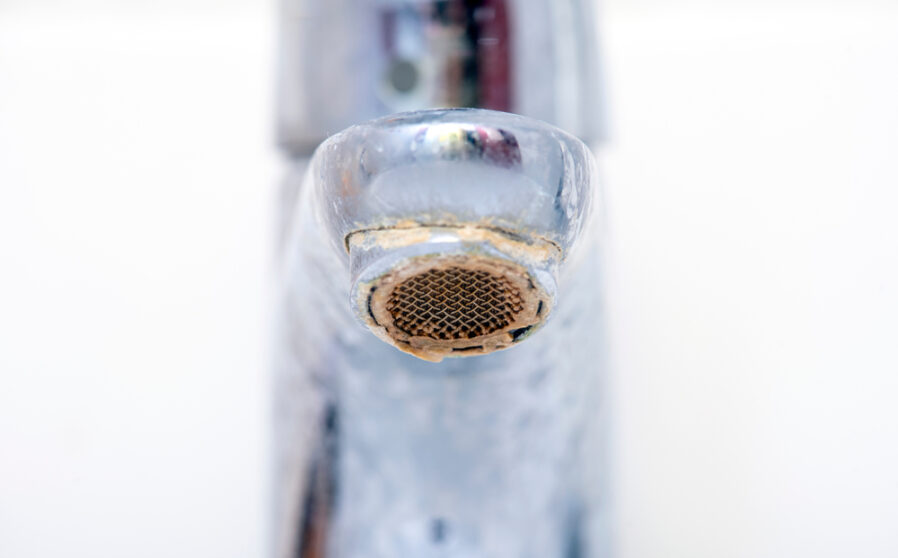Hard Water Headaches in Durham: Solutions for Limescale Buildup and Appliance Longevity

In the heart of North Carolina, Durham residents face a persistent and often overlooked household challenge—hard water. This naturally occurring phenomenon is more than just a minor inconvenience. It can gradually lead to costly damage, reduce the efficiency of household appliances, and leave behind unsightly residue. The issue has prompted many homeowners to seek effective solutions for limescale buildup and long-term strategies to preserve the lifespan of their water-using appliances.
Hard water, by definition, contains elevated levels of dissolved minerals, primarily calcium and magnesium. While not dangerous to human health, these minerals wreak havoc on plumbing, appliances, and even skin and hair. For those living in Durham, NC, hard water headaches can become a recurring source of frustration if left unaddressed. The key lies in understanding the root of the problem and exploring practical, long-term remedies to protect homes from its damaging effects.
Understanding Hard Water and Its Impact on Durham Homes
Durham’s water supply, like many municipalities in the Southeast, is naturally rich in minerals. While this mineral content isn’t harmful to drink, it leads to what is commonly known as hard water. The hardness level in Durham’s water varies depending on the water source and seasonal shifts, but many households consistently report issues indicative of mineral-heavy water.
One of the most common symptoms of hard water is limescale buildup. This chalky white residue accumulates on faucets, showerheads, tiles, and inside appliances such as dishwashers, coffee makers, and washing machines. Limescale is composed primarily of calcium carbonate and forms when hard water is heated or allowed to evaporate, leaving behind mineral deposits.
Over time, limescale reduces water flow, clogs pipes, and causes mechanical parts in appliances to deteriorate. In Durham homes, where high humidity and warm weather already contribute to maintenance demands, hard water adds another layer of complexity. The presence of limescale forces appliances to work harder, increasing energy consumption and shortening their lifespan. Water heaters, in particular, are prone to losing efficiency due to sediment accumulation at the bottom of the tank, resulting in higher utility bills and premature failure.
Why Limescale Is More Than Just a Cosmetic Issue
Many homeowners in Durham initially dismiss limescale as a cosmetic nuisance, but its implications go much deeper. Beyond the unattractive film on sinks and fixtures, limescale buildup can compromise the structural integrity of your plumbing system and appliances. The constriction of pipes due to mineral deposits can reduce water pressure and eventually require expensive plumbing repairs.
Moreover, appliances like dishwashers and washing machines become less effective at cleaning when limescale interferes with the heating elements and internal components. Soap and detergent may not dissolve properly in hard water, leaving clothes and dishes looking dull or still dirty. This inefficiency means homeowners often use more cleaning products and run appliances for longer cycles, increasing water and energy consumption.
Skin and hair are also affected. Hard water can strip natural oils, leading to dryness, irritation, and lifeless hair. Over time, these effects can impact the overall comfort and hygiene of residents in Durham homes. For those with sensitive skin or conditions like eczema, the presence of hard water can exacerbate symptoms and necessitate the use of additional skin care products.
These challenges, commonly referred to as hard water headaches in Durham, demand proactive solutions. Fortunately, there are several effective approaches for preventing limescale buildup in Durham homes and mitigating its consequences.
How to Fix Hard Water Problems in Durham, NC
Addressing hard water problems requires a combination of prevention and treatment. The most widely recommended and reliable solution is the installation of a water softener. For homeowners serious about reducing limescale and extending the life of their appliances, a water softener in Durham is a worthy investment.
Water softeners work by exchanging the calcium and magnesium ions in hard water with sodium or potassium ions. This ion-exchange process removes the hardness from water, eliminating the source of limescale before it has a chance to form. Water softeners come in various sizes and types, from whole-house systems to point-of-use models for specific appliances.
In Durham, where water hardness can fluctuate throughout the year, having a consistent water softening solution ensures stable water quality across all seasons. Many modern water softeners also come with digital monitoring features that allow homeowners to track their water usage and system performance, ensuring optimal operation and timely maintenance.
For those not ready to commit to a full water softening system, other options include descaling agents and water conditioners. Descaling agents can be used periodically to remove existing limescale deposits from appliances and fixtures. Magnetic or electronic water conditioners, while less effective than traditional softeners, alter the properties of minerals in water to reduce their tendency to adhere to surfaces. These solutions may be sufficient for smaller households or renters who cannot install permanent equipment.
Another important step in fixing hard water problems in Durham, NC, is regular maintenance of household appliances. Flushing the water heater annually to remove sediment, cleaning faucet aerators, and inspecting washing machine hoses can help minimize the impact of hard water over time.
Solutions for Limescale Buildup and Appliance Longevity
The key to managing hard water lies not just in treatment but also in long-term prevention. Solutions for limescale buildup in Durham homes begin with understanding your home’s water profile. Homeowners should consider getting their water tested to determine the exact level of hardness. Local water utilities may provide this information, or professional water testing kits can be used for more detailed analysis.
Once the hardness level is known, selecting an appropriate water softener becomes easier. For heavily affected areas, a dual-tank softener or a salt-free alternative may offer the best results. Dual-tank systems provide continuous soft water by alternating between tanks, while salt-free models use a different process to condition water without adding sodium.
To maximize appliance longevity, it’s important to follow manufacturer recommendations for maintenance and consider the water quality when purchasing new equipment. Some modern appliances are designed to handle hard water better, with built-in filtration systems or self-cleaning cycles. Choosing appliances with ENERGY STAR certification can also help reduce the added energy burden caused by mineral deposits.
In addition to hardware solutions, eco-conscious homeowners in Durham are turning to water-efficient habits. Reducing water temperature, using cold water cycles for laundry, and limiting the use of soap and detergents can all contribute to minimizing the effects of hard water. Installing aerators on faucets and showerheads can also reduce mineral buildup while conserving water.
Preventing Limescale Buildup in Durham Homes: A Smarter Approach
Proactive home care is the most effective way to combat hard water headaches in Durham. Preventing limescale buildup in Durham homes starts with awareness and leads to smart, sustainable decisions. Homeowners should consider water softeners not just as a luxury, but as an essential system that pays off in appliance savings, improved water quality, and enhanced comfort.
Partnering with local professionals for installation and maintenance ensures the system is properly configured for the specific water conditions in Durham. Regular monitoring, timely refills of salt or conditioning materials, and routine service checks are all part of a comprehensive water management plan.
Education is also critical. By learning how to fix hard water problems in Durham, NC, residents can take control of their home environment. Sharing knowledge with neighbors, participating in local forums, and staying informed through utility updates can foster a community-wide approach to water quality management.
Ultimately, living with hard water doesn’t have to be a headache. With the right tools and strategies, Durham homeowners can enjoy clean, efficient water that protects their investments and improves their quality of life. Addressing limescale today means preserving your home’s infrastructure, saving money on repairs, and contributing to a more sustainable future.
Conclusion
While hard water is a natural feature of life in Durham, it doesn’t have to control how residents live. By embracing proven solutions for limescale buildup and taking steps toward appliance longevity, homeowners can transform their homes into efficient, comfortable sanctuaries. Whether it’s through a state-of-the-art water softener in Durham or simple daily habits, the path to clean, mineral-free water is clear—and the benefits ripple across every faucet and fixture in the house.
Need a Plumber Near You?
Here at Shelton Plumbing Co., we’re proud to provide top-notch plumbing services to Durham, NC, and surrounding areas. With over 25 years of experience, our family-owned business is dedicated to delivering reliable, high-quality solutions for all your plumbing needs. Whether you need repairs, maintenance, or even a full remodel, we’re here to help—24/7, no matter the emergency. Your satisfaction is our top priority, and we won’t stop until the job is done right. Reach out to us today, and let’s take care of your plumbing needs!



